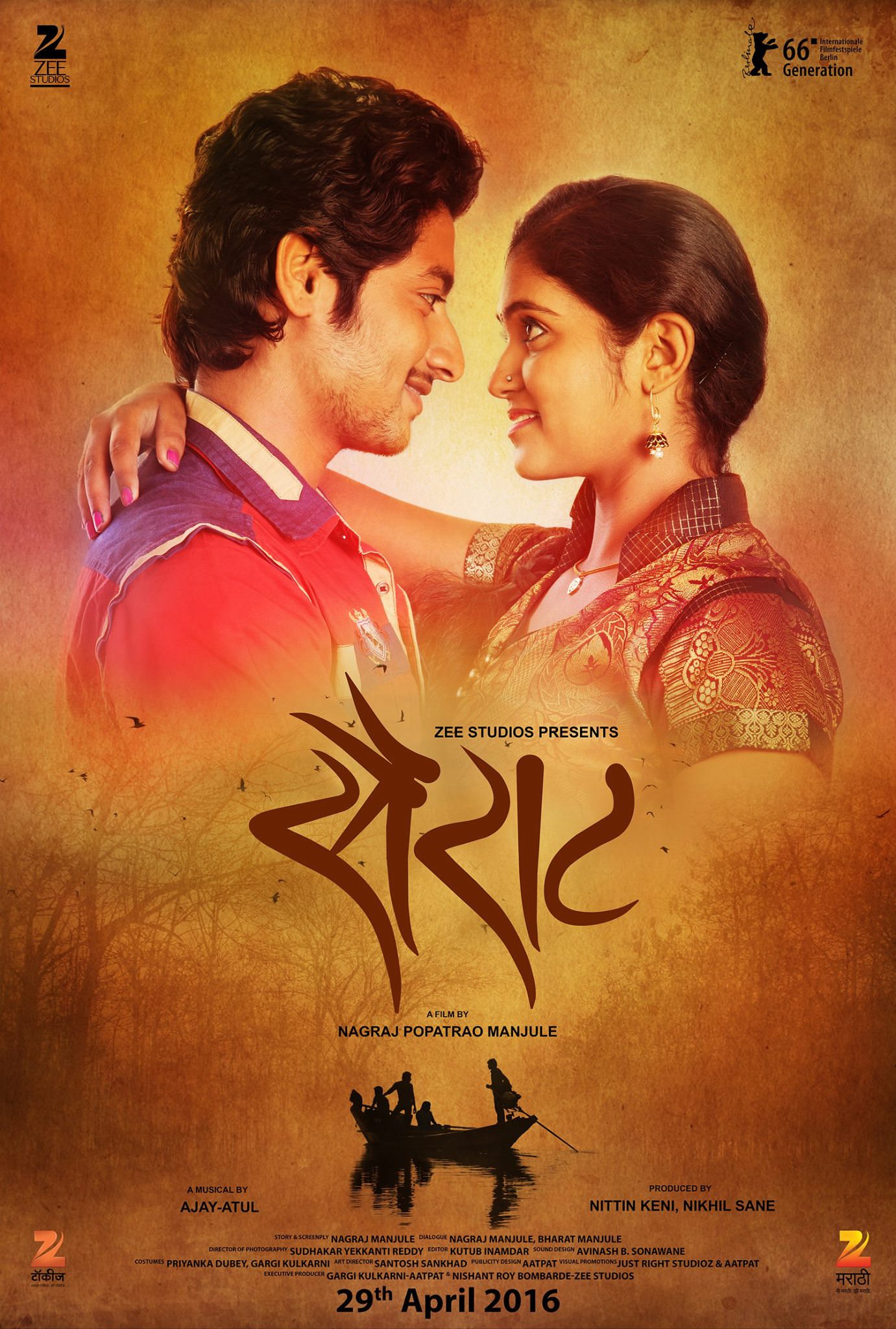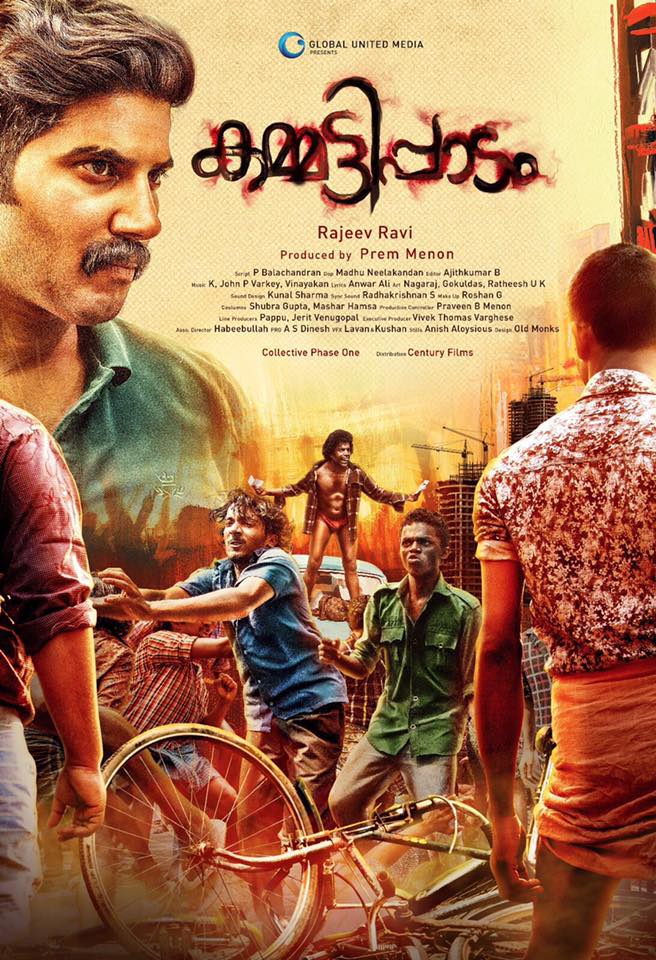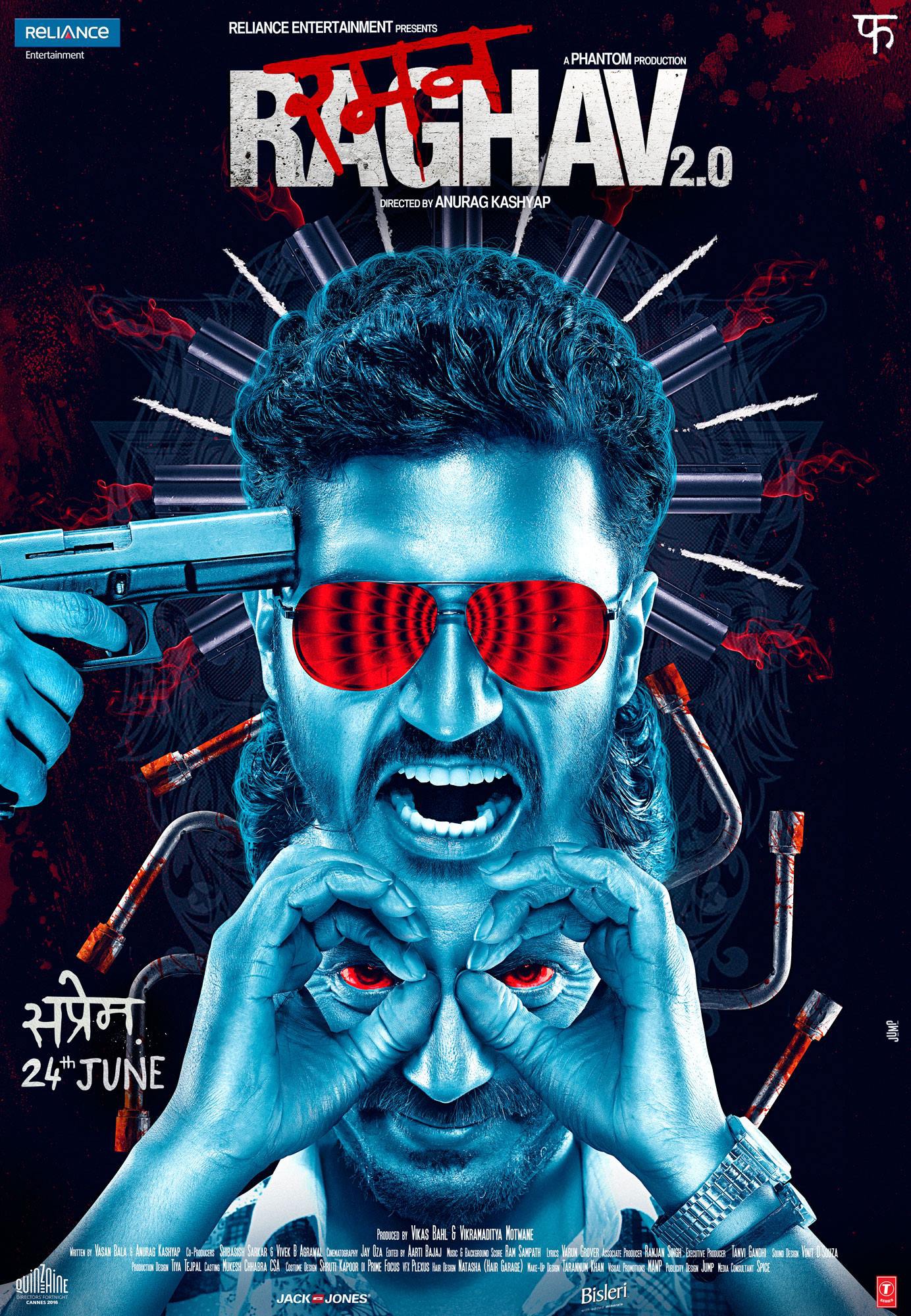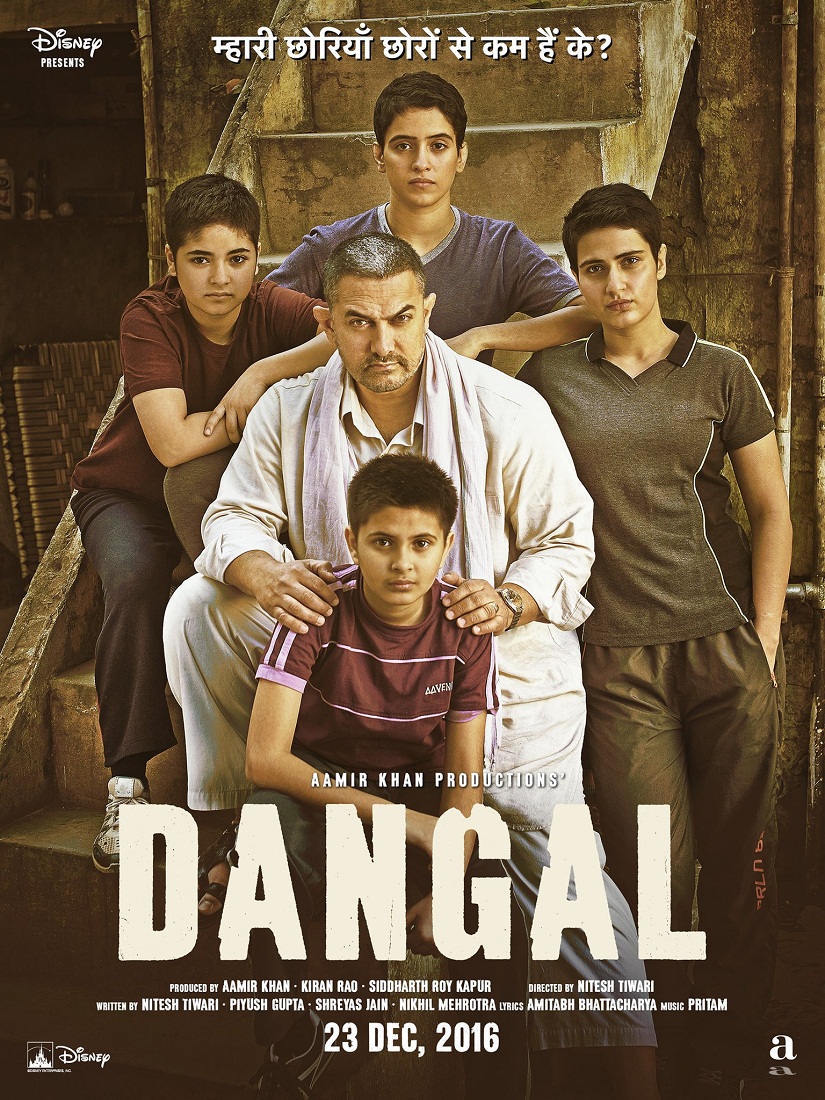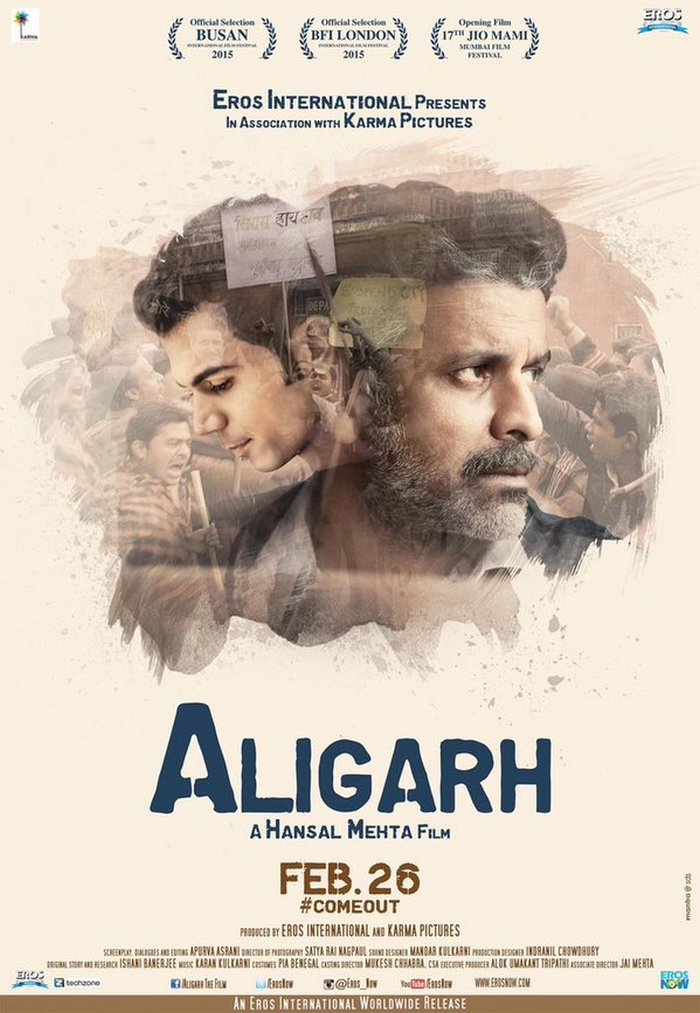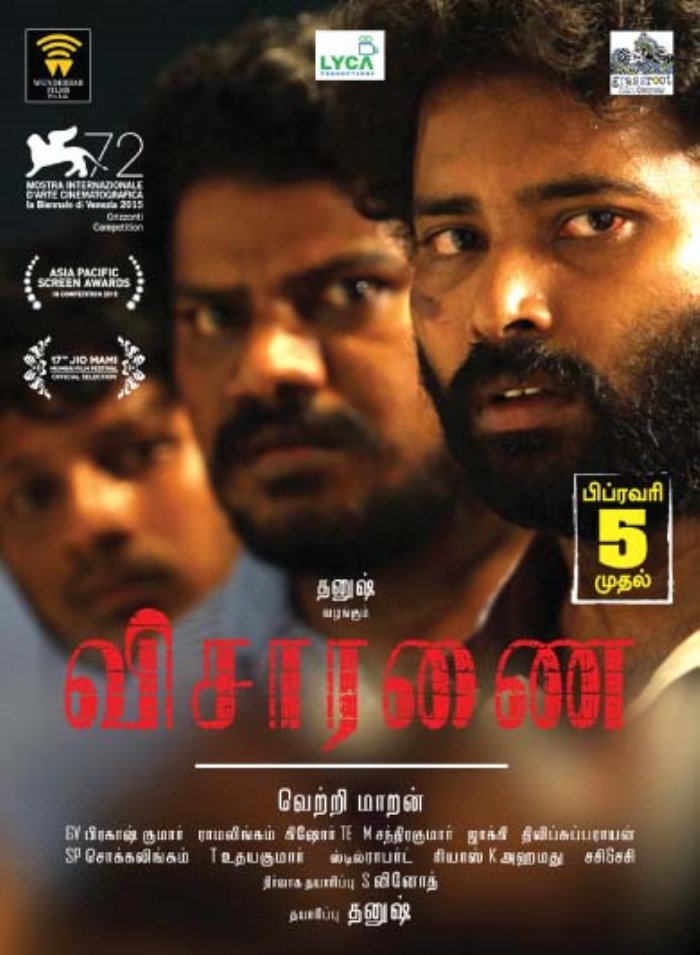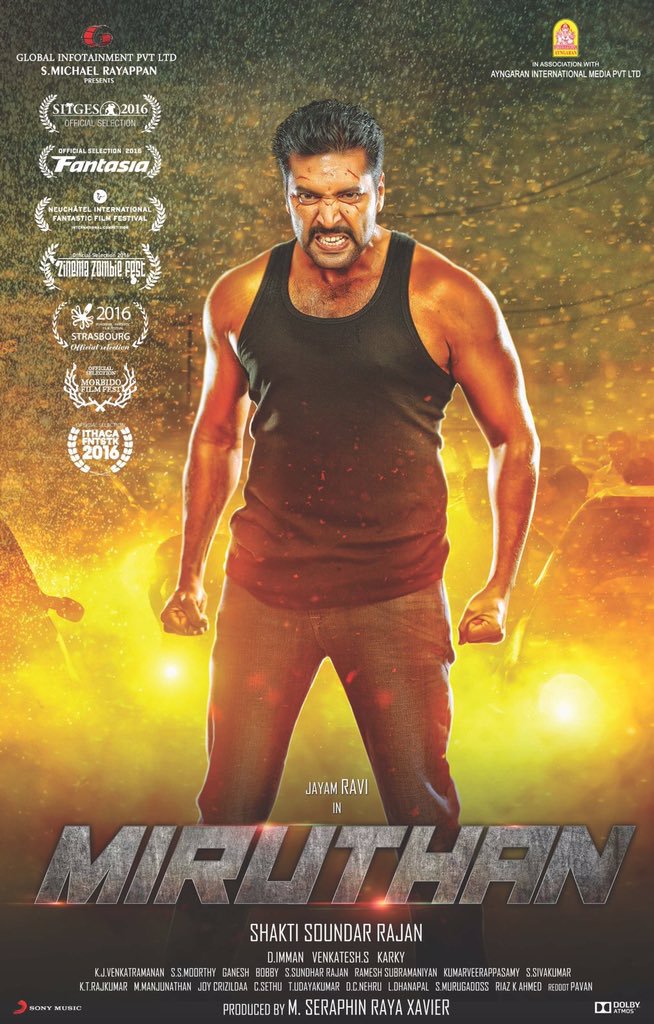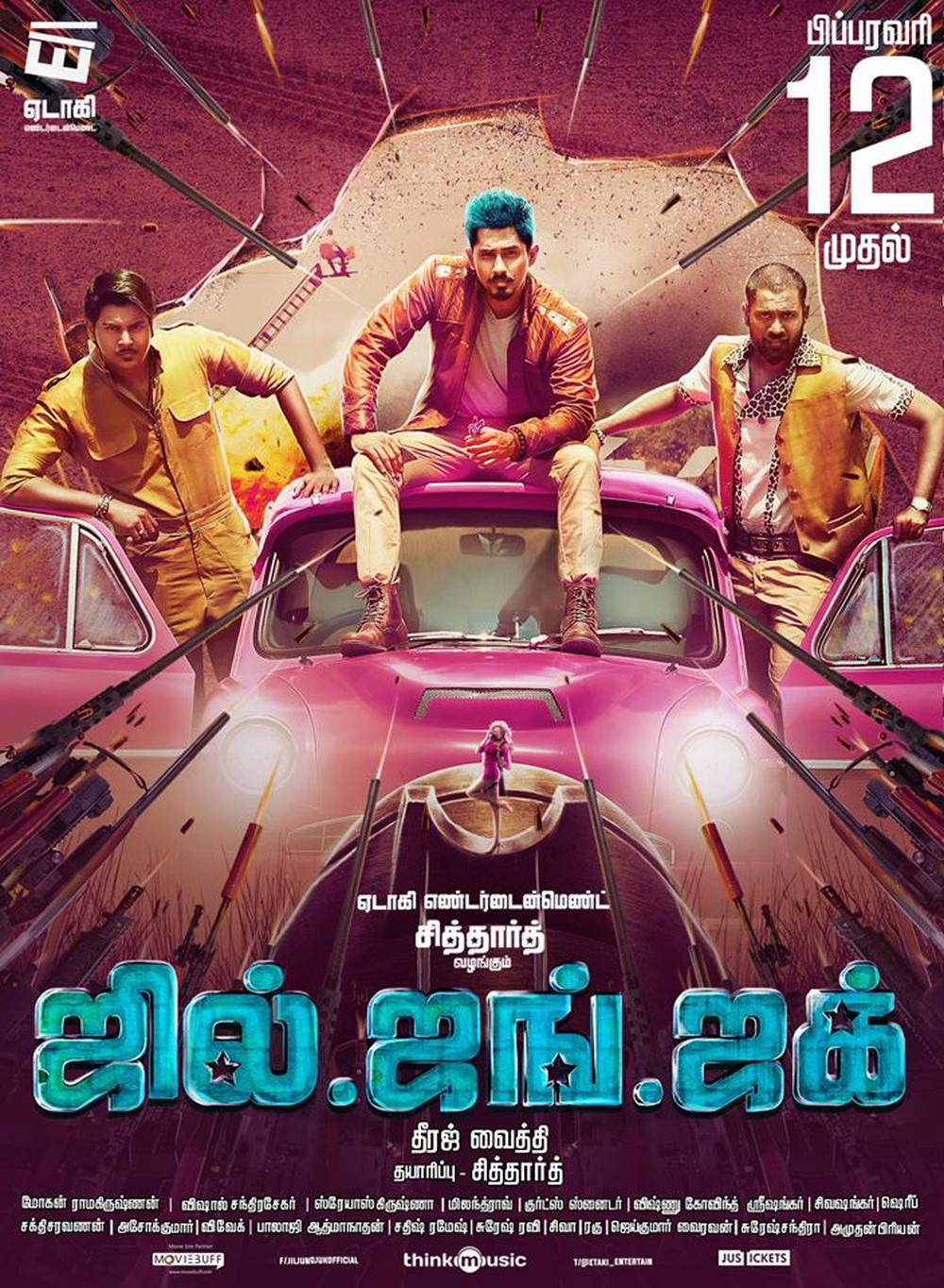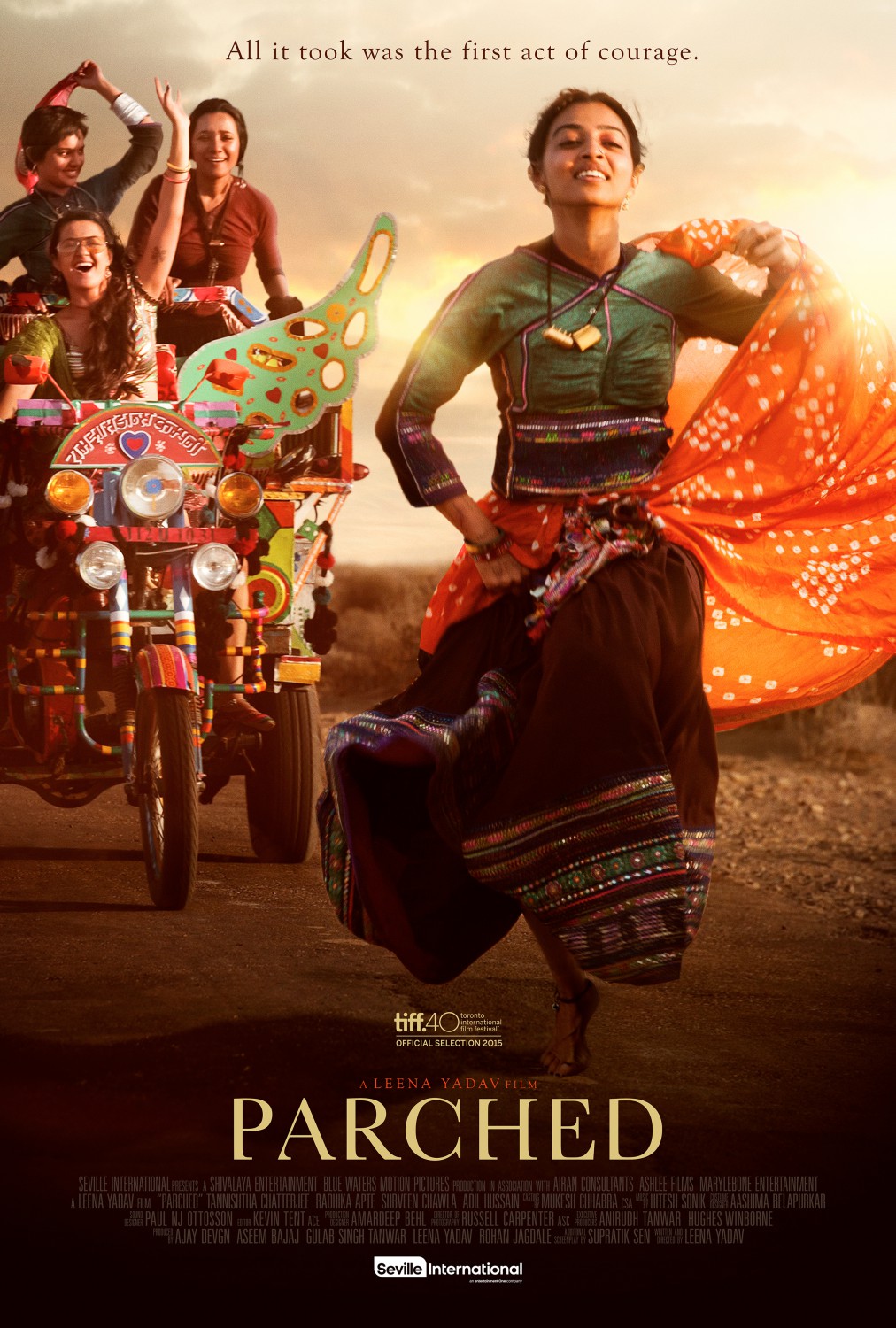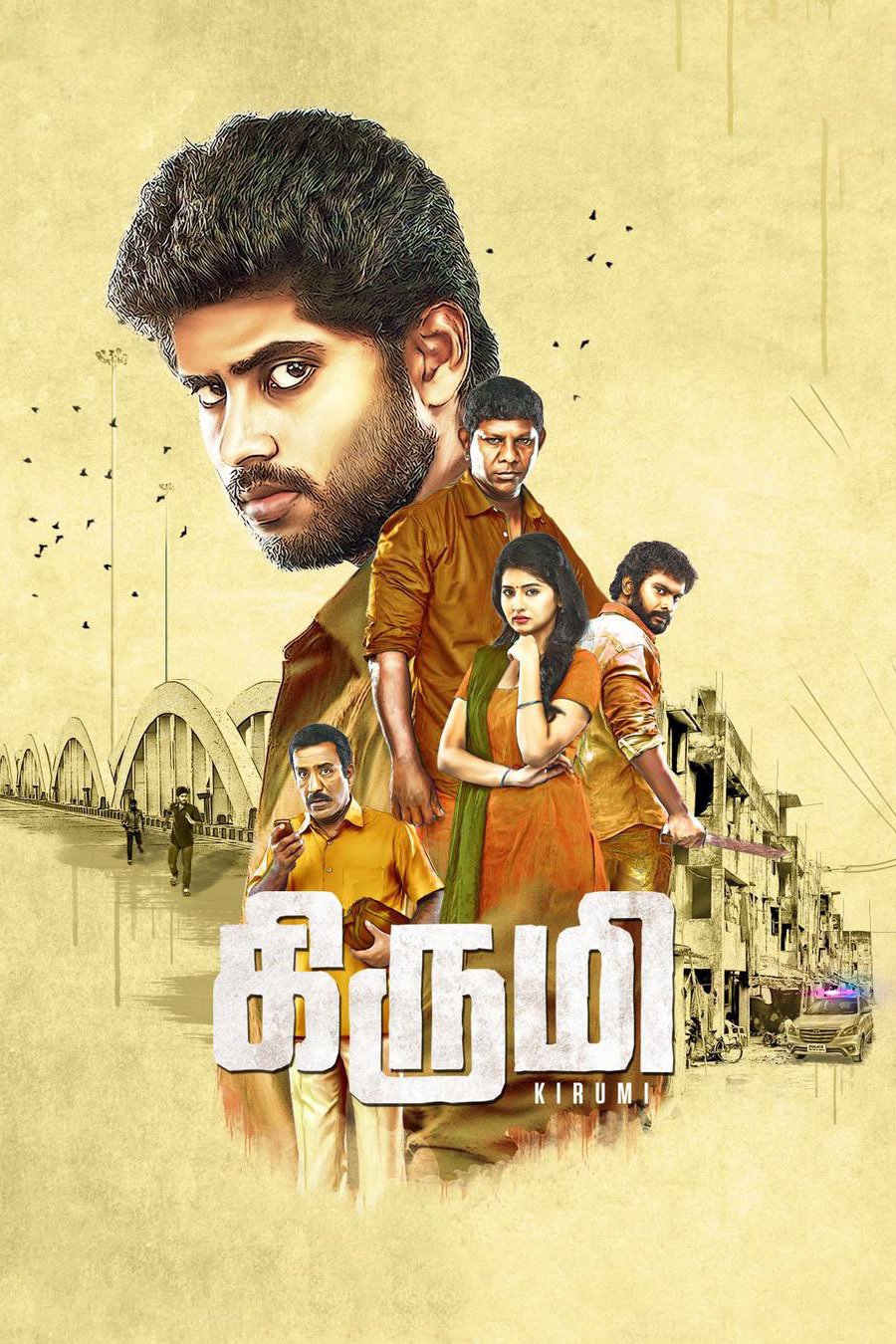2016 was a great year at the movies.
The world of cinema has provided a tremendous amount of joy for which we should feel grateful. While that could apply to the world at large, it especially applies to the cinema of India, for whom 2016 was a banner year for tremendous cinema. Unfortunately for most, these films have largely gone unnoticed outside of the subcontinent, but if you're wondering what exactly you have to look forward to in catching up with this year, I'm here to help.
Not only was this the most remarkable year for Indian cinema since 2012 (Gangs of Wasseypur, Miss Lovely, Aadukalam, Eega), but it's also the year that the world was brought a bit closer to Indian cinema through worldwide online streaming portals, especially Netflix. In fact, many of the top films on my list became available on Netflix in 2016, and I'll mention those as they appear. But enough wrap-up, let's get on with the specifics, my 12 favorite Indian films of 2016.













While the rest of the films on my list are in no particular order, Sairat is a clear number one for me. Director Nagraj Manjule appeared on my 2014 list with his last film, Fandry, he's back again and this time with an even stronger effort. This incredibly bold film is a masterpiece from start to finish. A story of caste politics and star-crossed lovers, Sairat transcends the boundary between popular and art house film in a way that is bound to leave you gasping for breath by the end.
I reviewed the film as it toured the US back in June:
Everything about Sairat is exceptional. In fact, if I didn't know better, I would say that Manjule only made this film to show Bollywood what a piss poor job they've been doing all of these years. Manjule challenges the audience at every turn to accept his demands of them. Follow me here, deal with this abrupt tone change, look into the life you wished for, is it everything you wanted?
At every turn, Manjule takes the audience's expectations and demands and gives them what they want without caring about how they want it. It's amazingly bold and confident filmmaking that should make every other filmmaker nervous and inspired at the same time. Manjule knows what the audience wants and he knows exactly how to deliver it, but he also knows what the audience needs, and that's what he's determined to deliver.
Sairat is astonishing filmmaking, from the joyous opening frames all the way through to the breathtaking conclusion. You will never see it coming, but you'll also never forget it, and that's the sign of a true classic.
Both Fandry and Sairat are available on Netflix worldwide
Rajeev Ravi's Kammatipaadam was one of the biggest surprises of the year for me. I knew nothing about it going in, apart from the fact that it was a gangster story, which in India is a dime a dozen. Coming out of the film, however, I was stunned.
This Malayalam language film had me floored, and even after a 3 hour run time, I was chomping at the bit for more. Once Upon a Time in America is probably the closest comparison I can draw, but Kammatipaadam is a bolder work than even that, with decades of caste politics and the explosion of the Indian economy as a backdrop for a deeply personal story. Rajeev Ravi is a director to watch out for, and I know that I will be keeping a very close eye on him.
I caught the film the same weekend as Sairat at a local second-run theater that also happens to run Malayalam films once a month and reviewed it then:
On its face, Kammatipaadam is a rather run of the mill story with a bit of flash in the story telling department, but don't be mistaken, this is an exceptional film that better defines its characters better than any in recent memory.
Kammatipaadam tells a story spanning 40 years. From Krishnan and Ganga's youth as children of poverty in the slums, through to their rise as small time hoods and enforcers under the guidance of Ganga's older brother Balan. The story of Kammatipaadam is the story of India, one of rapid growth outpacing the ability of the nation to adapt, creating vacuums of power just waiting to be filled by unscrupulous men. These men, the ones who truly gain from the ignominious deeds of men like Krishnan, are largely out of sight, but it isn't their story that Kammatipaadam is telling. It is the story of the foundation on which the throne of corruption is built, and a thrilling story it is.
At a hair shy of three hours, it might seem that Kammatipaadam could be an endurance trial for all but the most dedicated of film fans. However, the film never feels overlong or indulgent, and I'd have happily spent another three hours with these characters in this world. In fact, there is word that a four hour version of the film exists, and that knowledge has me chomping at the bit to dig further into the world of Krishnan and company. For my money, Kammatipaadam is the best crime film out of India so far this year and I'm looking forward to whatever Rajeev Ravi and Dulquer Salman cook up next.
After the critical and box office disappointment (perhaps the mildest way to put it) of Bombay Velvet, Anurag Kashyap was heading straight for the jugular with his next film, the serial killer thriller Raman Raghav 2.0 (AKA Psycho Raman). The movie made waves at Cannes and was quickly proclaimed to be a return to form for a filmmaker who needed to get back to his roots. The result is a gritty, violent, and nasty little movie that pokes at teh dark edges of the Indian consciousness in a way that most films are frightened to.
I reviewed the film upon its theatrical release back in June:
From the first frames of Raman Raghav 2.0, it is very clear that Kashyap does not care about appearing pretty on screen. The two leads, Nawazuddin Siddiqui and Vicky Kaushal, are clearly men made for filth, although their inverse evolution through the film is fascinating to watch. Siddiqui's Raman is a consummate professional when it comes to murder. He's unapologetic and his bluntness with the police who question him about the deaths of several people close to him makes them believe that he's got to be pulling their legs. He's so up front about his exploits that they label him a loony and set him free. He's slick and confident, the human avatar of Freud's Id, a man who has urges, acts on them, and feels no compunction to regret it.
Raman Raghav 2.0 is a stunning, violent, and complex work of art. This is the film I was waiting for, and Anurag Kashyap and his team have not disappointed.
Raman Raghav 2.0 is now available on Netflix worldwide.
Suriya is one of my favorite movie stars, but his track record over the last half dozen years has been utterly dire. He's a massive ball of charisma and physical prowess, but for some reason he's made a lot of bad choices when it comes to starring vehicles since his last big success in Singam (2010). So you can imagine how relieved I was that not only was his time travel masala film 24 good for a Suriya film, it turned out to be one of the most entertaining mainstream Tamil films of the year.
Unlike most of the other entries on this list, 24 doesn't try to be anything more than it is; an entertaining film with some fun high concept adventures and a delightful romance. What it does have is a ton of really great time-travel action - not unlike one of my favorite Tamil films of last year, Indru Netru Naalai - and a well put-together script that highlights his abilities and utilizes them well. This is a really fun movie that was forgotten far too quickly, and it's lack of availablity on home video doesn't help the matter.
Here are a few words from my review when the film released in May:
24 is a time-travel romantic thriller that plays with the tropes that we expect from all three of those different genres of films in a way that is uniquely Indian. The film was produced by Suriya’s own fledgling production company 2D Entertainment and he has really put everything he’s got into it, literally.
Suriya not only stars in 24, but he plays the three main characters, meaning that the film lives and dies with his performance(s). While an actor performing multiple roles in a film in India are nothing new – Shah Rukh Khan’s Fan just opened a few weeks ago, in which he plays dual leads – actors rarely have the opportunity to portray three characters in the same film. It is a huge risk, but somehow Suriya and Kumar make it work.
When so much masala fails these days, whether because of overextended romantic subplots or just plain bloat, it’s remarkable to see a film like 24 that reminds someone like me for whom Tamil is a second cinematic language, why I gravitated toward this stuff in the first place. 24 is a breathless, inventive, romantic, action packed adventure that is packed to the gills with surprises and joy. Some of it doesn’t make sense, and at times the logic involved has more holes than a wheel of swiss cheese, but it never stops being fun, and that is what makes it great.
Dangal is currently dominating the Bollywood box office, as is usually the case when Aamir Khan's annual Christmas movie arrives in cinemas. The best thing about it, though, is that Dangal turned out to be the best mainstream Hindi film of the year, so its success is welcome!
I just reviewed the film a few days ago, here's a snip:
Dangal is based on the true story of Mahavir Singh Phogat, a national level wrestler in India in the early '80s, and his daughters Geeta and Babita. Mahavir was always disappointed that he was unable to compete at the international level due to lack of resources and support from his country and was determined to live his dreams of international gold through his sons.
The problem was that he never had any. Phogat and his wife ended up with four girls over the course of 20 years and while he loved them, in them he saw his dream die, until one day when a couple of boys appeared battered and beaten in his home. When it's explained to him that these boys were the victim of a thrashing by his eldest two girls, he decides that they have the right stuff to succeed where he wasn't able, and he immediately sets about training them to become champion wrestlers.
There is very little in Dangal that is new in terms of inspirational sports films... However, it is the deft with which Tiwari balances the expected elements with his Bollywood flourishes that impresses here and leads back around to my initial statements. Dangal is a perfect entry point for outsiders afraid to approach Bollywood cinema.
I've been waiting for a great Bollywood film this year, and while there have certainly been some contenders, most of them fall into the gray area between mainstream and festival bait. Dangal is the first true film of international quality to come out of the system in 2016, and just in the nick of time. Leave it to Aamir Khan to do what he does best, make great films. Dangal is a winner.
Of all of the films on my list this year, it is probably Hansal Mehta's Aligarh that is the most powerful. Based on the true story of Professor S. R. Siras, Mehta's film and the twin powerhouse performances of Manoj Bajpayee in the lead and Rajkummar Rao in support, turn out to be one of the most stirring cinematic experiences of the year.
The story of the professor who is outed as gay through no fault of his own and driven to take desperate measures to protect himself is an incredible lesson in the bravery it takes to sometimes be one's self. Bajpayee puts in the best performance of 2016 in the film, leaving everyone else in the dust as perhaps the most human and humane character in Indian cinema this year.
The film never gained a commercial release in the US or outside of India, but I was fortunate to be able to see it in connection with the Indian Film Festival of Los Angeles:
In April of 2010, Professor S.R. Siras died alone in a rented room. He'd been sacked from his job as the head of the department of regional languages in Aligarh, Uttar Pradesh, India. He'd been a professor of Marathi at Aligarh University for a little over a decade. He was respected. He was loved. He was gay. Guess which one of those led to his death.
In Hansal Mehta's Aligarh, we follow Prof. Siras through the final year of his life leading up to his death. One night, a pair of TV reporters burst into his apartment, where he was entertaining a man, and filmed them as they begged to be left alone. The ensuing scandal led to Siras resigning from his post, being ostracized from the community, becoming the center of a movement for gay acceptance, and eventually to his death by unknown means.
Manoj Bajpayee plays Prof. Siras with a delicate nobility that betrays the profoundly unjust position he has been thrust into. The actor shows no fear in his portrayal of a man who is as confused by the world's condemnation of his private activities as he is unsure of how to deal with it all. Bajpayee is one of India's greatest working actors, and one of the few who can move freely between independent dramas like this, Gangs of Wasseypur, Chittagong, and others and the Bollywood world. Much of the film focuses on Siras's solitude, and therefore the camera lingers frequently on Bajpayee's face. These moments of silence, of reflection, of sadness, are what tells Siras's story better than any dialogue could.
Aligarh is not an Indian story, or at least not uniquely Indian. These things happen everywhere, every day. It is a story that needs to be seen and understood by everyone. It is not flashy, it is not aggressive, it is, however, infuriating. It is infuriating because it shows how prejudice and bigotry can destroy a person whose only crime is trying to be happy. Aligarh is a perfect requiem for a man who just wanted to be happy, and for that simple wish he died. See Aligarh, you owe it to yourself and those around you who are just looking for their own peace.
India's Academy Award submission this year was director Vetri Maaran's Visaranai (Interrogation), and its appearance on my list marks the second time the director has appeared here after his 2012 film Aadukalam. Visaranai is the true story of Tamil migrant workers in Telugu-speaking Andhra Pradesh and their false incarceration at the hands of corrupt police. It's a harrowing tale of fear and intimidation, and in these days of rampant corruption around the world and misuse of police authority, it's important that these stories get told.
I saw the film on its brief US release back in February and here's some of what I had to say then:
Vetri Maran returns with a masterful story of corruption in Visaranai (Interrogation). The film begins in rural Andhra Pradesh, a Telugu speaking region of India, where a small group of Tamil speaking immigrants, considered foreigners in AP, have migrated to find work. Pandi, a young man who works at a corner bodega in town, is spontaneously arrested by a local policeman and taken into custody along with some of his fellow Tamil migrants. No sooner do these clueless migrant workers appear in the station, than the police inspectors begin ruthlessly beating them with lathis (canes) in an effort to make them confess to their crimes.
The only problem is that they've committed no crime, and more than just being innocent, they are completely ignorant of any crime having been committed in the first place, which compromises their ability to confess to anything. The first half hour of the film is a vicious cycle of beatings, torture, waterboarding, and various questionable interrogation techniques designed to break their spirits. It soon becomes clear to the detainees that they are playing the patsy for some other criminal simply because they are non-natives who won't be missed. While everyone of them is crying to be set free, and they're being promised their freedom in exchange for confessions, Pandi insists that they remain firm and stand upon their innocence. After all, if they are all innocent, they must be freed eventually right?
The physical and psychic violence in Visaranai is brutal, visceral, and unavoidable. Each blow from the lathi leaves a scar, each kick from a boot leaves teeth missing, and each slap leaves a soul depleted. Then, just when it looks like Pandi and his friends are free from danger, they find themselves inserted back into the thick of it. This time, instead of a small time burglary, it's playing inadvertent witness to the kind of corruption that involves men in high places and the tools big shots use to shut each other up. The message is that no matter how powerful you are, no matter how much money you have, the system will find you, chew you up, and spit you out.
Visaranai brings a visceral tension to the screen that is sorely lacking in the cinemas of other regions of India. Vetri Maran is a force to be reckoned with, and hopefully it won't be long before the world casts its eye his way. I cannot recommend this film enough. Visaranai is the real deal.
Visaranai is now available on Netflix worldwide under its English title, Interrogation
I'm a little bit biased about this film, let me just get that out there. Miruthan is the first Tamil language zombie film and among the first handful of zombie films made in India. More importantly, it's a boatload of fun, landing somewhere between Shaun of the Dead, Resident Evil, and a musical version of Bio-Zombie.
This film is so much fun, in fact, that it inspired me to take my first steps into the movie business by helping to book it at festivals around the world, a journey that it is still on nearly a year after its February cinema release. I reviewed the film when it first came out, long before I became involved, and had this to say:
Miruthan is Tamil Nadu's first zombie film, but rather than simply attempting to crib from Go Goa Gone's success, these filmmakers are looking further afield for their inspirations. This film fits in very nicely with the post-2000 wave of survival horror films that horrified American audiences both with their visceral approach to violence and their loose adherence to accepted zombie norms. However, Rajan is not content to merely ape foreign fright films, instead he very firmly plants his cinema in the accepted regional tropes of popular Kollywood films, creating a potent and completely unique mixture that is unlike anything Western audiences have seen.
In Miruthan's world, zombies are created from leaked toxic waste, ignored by the handlers in order to avoid prosecution. While this is a familiar trope in horror films -- see Return of the Living Dead, Bio-Zombie, The Host -- it is also indicative of India's insidious corruption and the desire to simply sweep problems under the rug in spite of the growing focus on the nation as the world grows more and more interconnected. A cursory glance at any of India's leading news sources on any given day will yield a plethora of violations of public trust, corruption, violence against different castes/religions/genders. Miruthan trades on this distrust of authority and does it in a way that feels absurd to foreigners, but all too familiar to locals.
This film encapsulates what is best about good populist Tamil entertainment. It identifies its audience, creates a world in which the audience feels confortable and familiar, and then it subverts their expectations and takes them on a wild ride. Where the film succeeds, I think, unexpectedly, is that it both exemplifies and transcends regional entertainment by telling a universally popular story that includes locally acceptable tropes without alienating potential outside audiences.
[Director] Shakti Soundar Rajan and his producers took a huge risk in creating Miruthan. This is a subgenre of horror that Tamil Nadu has no history with, and even with Kollywood probably being the most tolerant of Indian regional cinemas in terms of experitmentation, it was never a sure thing. However, this film is an absolute home run. Intense when the circumstances require, ridiculous in all the best ways, and never boring, confusing, or precious for even an instant, Miruthan is possibly the best Indian mainstream horror film, comedy or otherwise, of the last decade.
Director Deeraj Vaidy's nutball, sideways gangster farce Jil Jung Juk is a film that no one was ready for. It's retro-future styling and propulsive soundtrack knocked Tamil audiences on their asses very quickly and untimately fed into the film's failure at the box office and with critics. However, I think it's great and a true testament to the creativity that is hiding in India these days. It's not going to make you think much, but it will sure as hell make you smile, and that's sometimes what it is all about.
I saw the film on its brief US theatrical run back in February and had these impressions:
The year is 2020, and in Vaidy's version of the post-apocalyptic wasteland, the men in charge are the ones who control the drugs and the gas. One such man, and the world's foremost drug kingpin is Deiva Nayagan (R. Amarendran), but even he is on his last legs after a major worldwide crackdown has peeled him back to his last four kilos of cocaine. He has one chance to get out of the business ahead, and that is to make a deal with Chinese dealers for the cocaine, but there's a catch. Tamil Nadu, where the film is set, is at the south end of India and China at the north end. The crackdown has made transporting the coke in its normal form impossible, but luckily, the filmmakers appear to have seen a few movies and a plan hatches.
In the spirit of Cheech & Chong's immortal Up in Smoke, Deiva and his henchmen find a way to turn the cocaine into a strawberry-flavored auto paint for a lovely vintage car. Now all they need are men to get the cocaine up north without drawing attention, Enter Jil (Siddharth) the smooth operator, Jung (Avinash Raghudevan) the timekeeper, and Juk (Sananth Reddy), the professional driver. The trio is pulled from small time con jobs into the big time because they were never successful enough to get on the police radars, literally. These three cats are to drive the car to a local vintage car rally and blend in with the scenery all the way to China. They make a mint, Deiva stays in business, and everyone walks away happy.
Unless, of course, something goes wrong.
As is the case with any good caper film, everything goes wrong. Colorful characters litter the highways of south India just waiting to distract our heroes -- if you can call them that -- leading to confusion, double crossing, and good old-fashioned shenanigans. There are too many twists to properly summarize without giving away crucial plot points, but suffice it to say that the car takes a bit of a journey without our friends that leads to an hour of plotting and subplotting in an attempt to cover up all of the various threads they've pulled loose.
For a first feature, Deeraj Vaidy really swings for the fences here, with his visual approach ranging anywhere from adventurous to outright goofy, but for the most part it works. Part Snatch, part Scott Pilgrim, even part Matrix at times, Vaidy throws everything he can think of at the wall and shockingly much of it sticks. I have no doubt that if Jil Jung Juk is remembered fondly by Tamil audiences -- the local critics don't seem to think much of it -- it'll be as a film that tried something different, which is a tactic that Tamil audiences seem to be fairly tolerant of. Obviously not everything works, but even the stuff that doesn't is exciting to watch.
Jil Jung Juk probably won't make festival rounds, and I don't know if it'll survive another week at the cinema with several big name Tamil films on their way soon, but for those of us who can say we were there, we definitely saw something unique. Wonderful visual style, one of the finest soundtracks of the last few years thanks to Vishal, and an ambition as big as its characters' dreams make Jil Jung Juk a definite win for me, even when its reach exceeds its grasp.
Pavan Kirpalani's Phobia is the only film on my list this year that I didn't have an opportunity to formally review, so bear with me.
Phobia is a Repulsion style claustrophobic thriller starring the astonishing Radhika Apte as Mehak, a woman who becomes a shut-in as a result of post traumatic stress disorder after a violent attack. Not only is she afraid of the outside world, she's equally afraid of allowing into her sanctum, an apartment loaned to her by an old flame who attempts over and over again to get a bit too close for comfort.
On top of her paralyzing fear of leaving the apartment, Mehak starts experiencing terrifying hallucinations that become increasingly violent. No safety within or without, Mehak's condition worsens until a terrifyingly clever climax wraps it all up in a satisfying and remarkably intelligent way. Phobia is the Hindi horror film of the year, and very likely the best in a very long time.
Phobia is the rare Hindi horror film that puts trust in its audience, and that is a bold move in and of itself. The scariest thing about most Hindi horror films is how stupid they are, but co-wirters Kirpalani and Arun Sukumar have crafted an intelligent and bold story that engages with the audience and demands multiple viewings. This team is one to look out for, Kirpalani has made other horror films, including the found footage Ragini MMS and the currently available on Netflix Darr @ the Mall, but Phobia is easily his best work. I've also seen some of Sukumar's short films and am very confident that this isn't the last we'll be hearing of him.
However, with a film like Phobia, no matter how good the direction or the writing, without a strong central performance, the whole thing falls apart. Thankfully the film has the astounding Radhika Apte, India's finest actress and one of the best in the world, in the middle of all of this chaos, and she sells it beautifully. Well known as one of India's boldest performers, Apte is a fearless artist, and even in a genre film she gives it her all which goes a very long way toward selling the madness.
Phobia never got a release outside of India, and I was fortunate to see it shortly after its release, but wasn't quite able to share it the way I wanted to. It still isn't available on any of the popular streaming services either, but if you get a chance, I strongly recommend it.
Radhika Apte appears again as a member of a wonderful quartet of female performers in Leena Yadav's Parched alongside indie queen Tannishtha Chatterjee, Surveen Chawla, and Lehar Khan. This isn't the kind of film we usually rave about at ScreenAnarchy where we built our rep on digging up genre films, but it's too good a movie to leave out.
I was able to see the film as a part of the New York Indian Film Festival earlier this year and had this to say:
Parched is the story of a quartet of women in rural Gujarat who struggle against the oppressively patriarchal power strucutre in their small town to attempt to gain a bit of autonomy. Tannishtha Chatterjee (Sunrise, Angry Indian Goddesses, Chauranga, Monsoon Shootout, Siddharth) plays Rani, the matriarch of a family into whom a woman from a neighboring village is wed. The new bride Janaki, played by Lehar Khan, appears for the wedding having cut off all of her beautiful hair because of lice, setting the entire village a flutter.
Rani's son - and Janaki's husband - is Gulab, a violent drunken child who loves nothing more than flaunting his newly earned status as an adult by spiriting himself off to the local dance troupe/brothel. Holding court at the troupe is Rani's old friend Bijli (Surveen Chawla), a bar dancer par excellence who moonlights as a courtesan for the local drunkards. Holding the group together is the fiesty Lajjo, played by up-and-coming dynamo Radhika Apte, an expert seamtress who longs to have a child with her abusive husband in the hopes that it will both make her whole and settle him down.
Parched is a scathing critique of the intransigence of the patriarchy in rural India, but more than that, it's a celebration of the liberty that comes from smashing said patriarchy. Any film can paint a dour picture and beg for your attention, it takes a special work to reassmble the broken pieces into a thing of beauty, and that is what Parched does.
It takes pain and oppression and uses it to build power in the downtrodden. In the west there has been feminst backlash against using sexual violence as a way to inspire female protagonists to action, but in India, this is the reality, and Parched shows just how strong their love is, and how that love that bring about the change they need to save their own lives and become more than they are. Their lives are painful, their lives are struggle, but in the end their lives are their own, and that's a joy that few are able to claim.
Parched is available to stream on Netflix worldwide.
The last of my official picks for 2016 is another Tamil film, this time something a little bit different. Kirumi is the debut feature from director Anu Charan, written by the director of last year's breakout hit The Crow's Egg (Kakkaa Muttai), M Manikandan. In Kirumi a young nobody takes a job as a police informant to make ends meet and before too long finds himself in over his head when he decides to take on a local boss who did him wrong.
Technically Kirumi released in the fall of 2015 in Tamil Nadu, but it never for a cinema release in the US, and I only saw it in the last few days of 2015. It's US premiere was in 2016, so I'm including it on this list because it was too late to make last year's and it's just that good. I was able to review the film as part of the Indian Film Festival of Los Angeles and I was impressed all over again:
Kathir (Kathir) is a young man on the grind. He's broke as a joke, but trying to make ends meet for his family with one hustle after another, sadly nothing seems to stick. He has a beautiful wife and infant at home, but he spends most of his time just hanging out with his friends, who also seem to have nothing but an abundance of time and pride on their hands. When his neighbor and mentor, Prabhakar (Charle), hips Kathir to the fact that he works as a police informer, the light in the young man's head goes off, and it's all downhill from there.
Kathir works the dirty jobs that are given to local layabouts by the corrupt police as a way of keeping them in check and the cops coffers full. When Kathir begins to show his value to the force, his position as majordomo to the cops on the make quickly solidifies, but too much is never enough. When he gets in between a pair of feuding police inspectors over a local illegal card game, a close friend gets caught in the crossfire and suddenly Kathir goes from hero to goat, and before he knows it, he's running for his life.
From the opening strains of the brilliant score by Indian composer K, Kirumi sets a tone that is unmistakable and unique. Yes, this is a crime story, and even though the characters aren't overtly criminals, they are very clearly nobody's heroes either. Kathir, while he is definitely our protagonist, is far from a white hat in this film, as established within the first reel which shows him visiting not only his wife, but his mistress as well. In spite of all of his faults, though, we sympathize. Manikandan and Anucharan have written him as a character with a believable arc that wams the viewer to his cause, even as he begs, borrows, and steals his way through life.
Anucharan is clearly as student of film just as much as he is now a teacher. Kirumi is one hundred percent Indian, and even moreso, one hundred percent Tamil; but at the same time embraces the world of western gangster films that has influenced filmmakers, and film fans for decades. In the future, film scholars will look back on these years in Tamil cinema and wonder how they managed to sleep on it for so long. Consider this your wake up call, Kirumi is a great film that deserves a broader audience. The new Indian cinema is here and waiting for you to pay attention, all you have to do is give it a chance.
Somehow, without realizing it, the 12 films that ended up on my list all got commerical cinema releases in India, and all but four of them also released commerically in the US. I was fortunate to see tons of Indian films at festivals around the world this year, and I would be remiss if I didn't at least whet your whistle with some films to look forward to in the coming months.
Before I get into the long list of great films, I need to acknowledge the two performers above who were mainstays of quality acting in several movies this year. At left is Radhika Apte, already appearing twice above for Parched and Phobia, she also appeared in international omnibus Madly and won an award at Tribeca. Apte is the next generation's icon. At right, Adil Hussain, who appears in Parched above, along with Kothanodi and Hotel Salvation below. Hussain is an amazing performer who's mere presence guarantees a certain level of quality in any film.
The following is a list of honorable mentions, most of which I've reviewed on these pages, that you should definitely look out for over the next year, some that are even available now on Netflix. This was an exceptional year for Indian films and any one of these films could've easily found a spot in the top list in most other years, but that doesn't mean that they don't deserve recognition here (all text from my reviews unless otherwise noted):
Khoya (dir. Sami Khan) -
Sami Khan was correct when he first contacted me about Khoya, this is not a genre film. There are no decapitations, no car chases, no spectacularly violent action sequences, and no tits. However, there is something much more powerful behind Khoya; It is a debut that deserves notice and there is a heart and a soul that many first time filmmakers fumble, but Khan manages with aplomb. Perhaps it is the four-plus years between conception and execution that has allowed him this grace, but whatever the cause, the effect is powerful, and Khoya is a debut that deserves notice.
U-Turn (dir. Pawan Kumar, now on Netflix) -
U-Turn is a film that is unafraid to take chances, and in this case the chances really pay off in a finale that you will not see coming.
Hotel Salvation (dir. Shubashish Bhutiani) -
Hotel Salvation definitely takes on some weighty topics in its search for enlightenment, but thankfully Bhutiani takes on most of the heavy lifting for the audience. We think about life and death, sin and redemption, filial versus financial duty, and the terrible, wonderful bonds of family; and we do so in a wonderfully charming way.
In the end, Hotel Salvation is a celebration of all the things we miss when we stop looking around at just how amazing life can be, and sometimes a reminder is all it takes to remember to smile.
Brahman Naman (dir. Q, now on Netflix) From Alex Koehne's Sundance review -
For a movie that takes place in a very different time and place, it is impressively relatable. Naman calls the girl he has a crush on but hangs up as soon as she answers - way too nervous to talk. Their rival, Ronnie (Sid Mallya) invites them to his party, only to make fun of them once they arrive. Yet they go expecting this anyway, just to be at the cool kids party. With hilarious vignettes of their experiences, Brahman Naman might be called the Indian Superbad. It's got just as much heart as it does antics and with an interesting cultural critique running just below the surface, there is more than meets the eye at play in this fantastic farce.
Kothanodi (dir. Bhaskar Hazarika, now on Netflix) -
Fright fans looking for thrill-a-minute gorefests will likely be disappointed, however, those in the mood for more cerebral indigenous horror are likely to find as much to love about Kothanodi as I did.
If you can get past the frequently languid pacing, it becomes clear that Kothanodi trades thrills for atmosphere, and in the end its a more than fair trade as the film delivers not only one of the most gruesome and savage experiences in recent Indian film history, but also a window into a region of this immense nation that even native Indians don't often get.
Autohead (dir. Rohit MIttal, now on Netflix) -
Along with Anurag Kashyap's Raman Raghav 2.0, Autohead is one of the grittiest genre films to come out of India this year. The film is certainly not made for mainstream audiences, and I have a hard time believing that it would pass through the censors in the version I saw, however, festival crowds have been eating it up. I really like the film, and if anything I think the inspirations provide an interesting frame around which Mittal was able to build his own story that touches on his own cultural concerns in much the same way Taxi Driver did.
Maroon (dir. Pulkit) -
First time writer/director Pulkit does justice to a tricky set of circumstances in Maroon, a film which could've been disastrous in the hands of a less confident director. While Pulkit understands his constraints and utilizes them wisely, it is all in the service of the story, and never do his limitations becomes outwardly apparent to the viewer. Maroon is a film set in a single location, which goes a long way toward moderating budget concerns, but also proves thematically important as the film is the story of a man who doesn't leave his home for the duration of his wife's absense. As a result, the viewer is a party to his paranoia and claustrophobia in a way that a more expansive production would've certainly mismanaged.
As India's independent cinema expands and diversifies, it's wonderful to see films like this find a place in the international marketplace... Maroon is an exceptional film that deserves the notice of the indie film world, and I hope it finds an audience both at home and abroad.
Saheb Bibi Golaam (dir. Pratim D. Gupta, now on Netflix) -
Indian thrillers are a dime a dozen these days, every major and regional industry cranks them out with disturbing regularity, however not many are quite as smart as Saheb Bibi Golaam. Gupta's script and the performances of the lead actors make for a potent combination that - while not perfect and certainly leaving room for improvement in the execution - are most definitely welcome and give me the desire to see more work from everyone involved. This one is definitely worth checking out.
Ottaal (dir. Jayaraj) -
Ottaal is a powerful film. A film that emphasizes the capacity for hope in a world that attempts to crush it at every turn. A film that builds its hero into a beacon of positivity in a sea of bad options. Ottaal both challenges by faith in humanity and restores it, all in the space of eighty-one minutes. Ottaal makes me both grateful not to be have been born poor in India, and sad for the opportunities missed. Ottaal is the kind of film that, even though it leaves its audience on a completely dour note, still leaves room for hope by the fact that its hopeless lead always comes out on top. Ottaal managed to wring more emotions from me in its short run time than perhaps any film twice its length has ever managed. That's what I want from my cinema, I want to go on an emotional journey, and Ottaal took me there.

More about Sairat
More about Raman Raghav
- Fantastic Fest 2016 Preview: DISHOOM REIGNS! 6 Reasons to Set Your Sights on the Indian Sidebar
- BiFan 2016: Local Hits THE WAILING and KARAOKE CRAZIES Lead Award Winners
- BiFan 2016 Preview: Recommendations and Anticipated Delights
- Review: RAMAN RAGHAV 2.0, Twisted Soulmates Dance With Darkness
- Cannes 2016: Anurag Kashyap's RAMAN RAGHAV 2.0 Gets A Dark Domestic Trailer
More about Dangal
More about Aligarh
More about Visaranai
More about Miruthan
Around the Internet
Recent Posts
Now Playing: SCREAM 7 Not So Scary, GHOST ELEPHANTS Not a Myth
Leading Voices in Global Cinema
- Peter Martin, Dallas, Texas
- Managing Editor
- Andrew Mack, Toronto, Canada
- Editor, News
- Ard Vijn, Rotterdam, The Netherlands
- Editor, Europe
- Benjamin Umstead, Los Angeles, California
- Editor, U.S.
- J Hurtado, Dallas, Texas
- Editor, U.S.
- James Marsh, Hong Kong, China
- Editor, Asia
- Michele "Izzy" Galgana, New England
- Editor, U.S.
- Ryland Aldrich, Los Angeles, California
- Editor, Festivals
- Shelagh Rowan-Legg
- Editor, Canada


